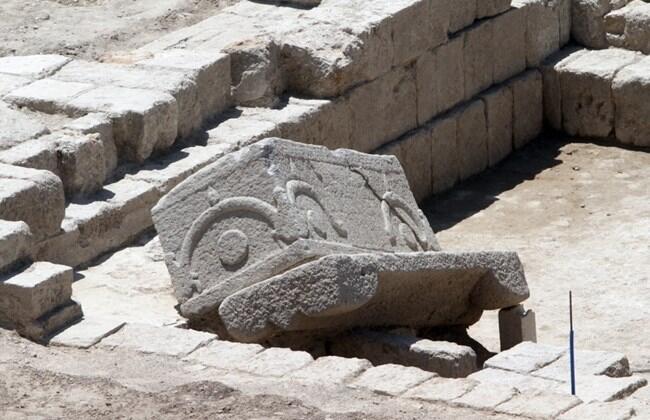The Roman period in Sidon extended over hundreds of years, and left behind a number of archeological treasures in the city. The new discoveries are not the first in Bustan al-Kabir. Last month, a Roman wall and two burial grounds were found at the construction site. Skeletons, pottery and coins with Latin inscriptions were also discovered inside what is believed to be a burial ground. The office of the Directorate General of Antiquities in Sidon has been carrying out the excavation of the site. Miriam Ziadeh, the head of Sidon’s Bureau of Antiquities, emphasized that the Roman era lasted for a long time in Sidon, and that the new discoveries in Bustan al-Kabir suggest a number of possible uses for the area. “Discovering a well shows that [the area] was either agricultural, or related to burial rituals, as a sarcophagus was found near the well and small cemeteries next to it. [The well could also have been used] for water in the daily life of residents of that civilization,” Ziadeh said, explaining that it is too early to conclusively draw the features of the entire site and understand how exactly it was used. She explained that the Directorate General is still in the process of cleaning the pottery, coins and glass that were also found there. “We are working to connect historical periods together and find physical evidence [that would] … detail the motive, purpose and usage for the artifacts and ruins that have been found,” Ziadeh said, adding that the team is currently focused on scientifically documenting the finds. The Daily Star











